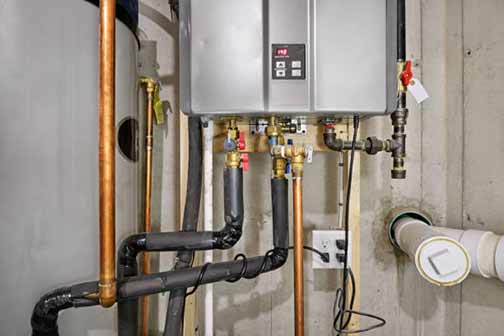
In today’s fast-paced world, the demand for efficient hot water systems in modern homes is at an all-time high. The rising energy costs and an increasing emphasis on sustainable living make optimizing hot water flow not only a matter of comfort but a crucial economic and environmental consideration. By enhancing the efficiency of your hot water distribution, you can enjoy reduced utility bills, a smaller carbon footprint, and a more reliable water supply, aligning with the needs of contemporary living.
Assessing Your Current Hot Water System for Optimal Performance
Before you can embark on any improvements, it is essential to understand your current hot water system thoroughly. This involves evaluating the type of water heater you have, its age, condition, and the overall layout of your plumbing. Regular inspections by a plumber can help identify inefficiencies or areas for improvement, such as leaks or outdated components that may cause the need for a premature water heater replacement. A detailed assessment is the cornerstone of any successful optimization strategy.
Choosing the Right Water Heater for Maximum Efficiency in Your Home
The selection of a water heater is a pivotal decision that can significantly impact your home’s energy efficiency. Modern options include tankless water heaters, which provide hot water on demand and eliminate the energy losses associated with storing hot water. Alternatively, heat pump water heaters use electricity to move heat from one place to another rather than generating heat directly, making them a highly efficient choice. Selecting a water heater that suits your household’s needs and energy consumption patterns is key to optimizing hot water flow and achieving long-term savings.
Implementing Smart Plumbing Solutions for Enhanced Hot Water Flow
Optimizing hot water flow also involves the implementation of smart plumbing solutions. Insulating hot water pipes can significantly reduce heat loss, ensuring that water reaches your taps at the desired temperature more quickly. Additionally, installing a hot water recirculation system can provide instant hot water at every faucet, reducing water waste and improving convenience. These solutions, while requiring an initial investment, often pay for themselves over time through energy savings and improved efficiency.
Adopting Energy-Efficient Practices to Boost Hot Water Efficiency
Beyond hardware upgrades, adopting energy-efficient practices can further enhance hot water flow optimization. Simple actions such as lowering the thermostat on your water heater, fixing leaks promptly, and using low-flow fixtures can significantly reduce your energy consumption. Educating household members about these practices ensures that everyone contributes to a more efficient and sustainable home environment, fostering a culture of conservation and responsible energy use.
Leveraging Technology for Enhanced Control and Efficiency in Hot Water Systems
Incorporating technology into your hot water system can offer greater control and efficiency. Smart thermostats and water heater timers allow you to schedule heating times, ensuring hot water is available when needed without wasting energy. Additionally, monitoring systems can provide real-time data on water usage and temperature, enabling you to make informed decisions about your water heating practices. Leveraging technology can transform your hot water system into a more responsive and adaptive component of your home.
Understanding the Economic Benefits of Optimizing Hot Water Flow
Optimizing your hot water flow is not only beneficial for the environment but also for your wallet. By reducing energy consumption, you can significantly lower your utility bills. Furthermore, many regions offer incentives and rebates for upgrading to energy-efficient water heating systems, providing additional financial benefits. Understanding these economic advantages can motivate homeowners to invest in optimization strategies, making it a financially savvy decision that pays dividends over time.
Environmental Impact of Efficient Hot Water Systems in Sustainable Living
Efficient hot water systems contribute to a more sustainable future by reducing greenhouse gas emissions. By minimizing energy waste, you can decrease your home’s carbon footprint and contribute to global efforts to combat climate change. As more households adopt these practices, the cumulative impact can lead to significant environmental benefits, supporting a collective movement towards a greener and more sustainable world.
Conclusion: A Seamless and Cost-Effective Hot Water Solution for Modern Living
In conclusion, optimizing hot water flow in your home is a multifaceted approach that involves evaluating your current system, choosing the right water heater, implementing smart plumbing solutions, adopting energy-efficient practices, and leveraging technology. By doing so, you can enjoy a seamless and cost-effective hot water supply that meets the demands of modern living. The benefits extend beyond comfort and convenience, offering significant economic and environmental advantages that contribute to a more sustainable future. Embracing these strategies can transform your home into a model of efficiency and sustainability, paving the way for a better tomorrow.